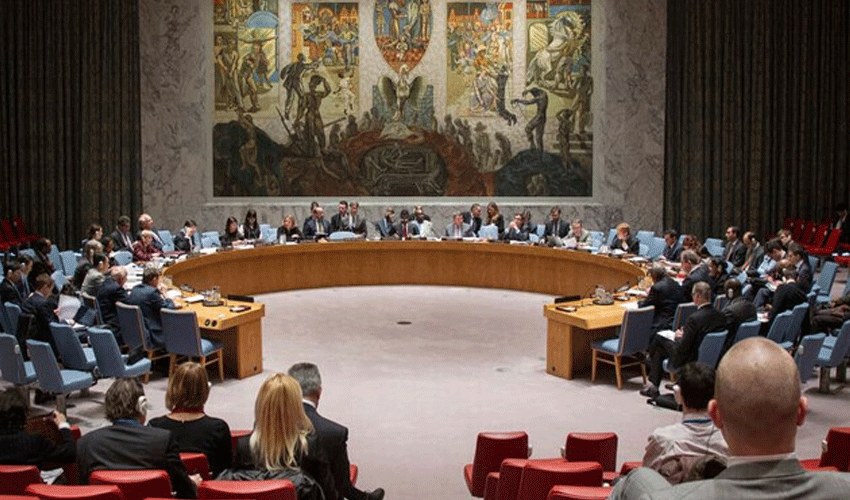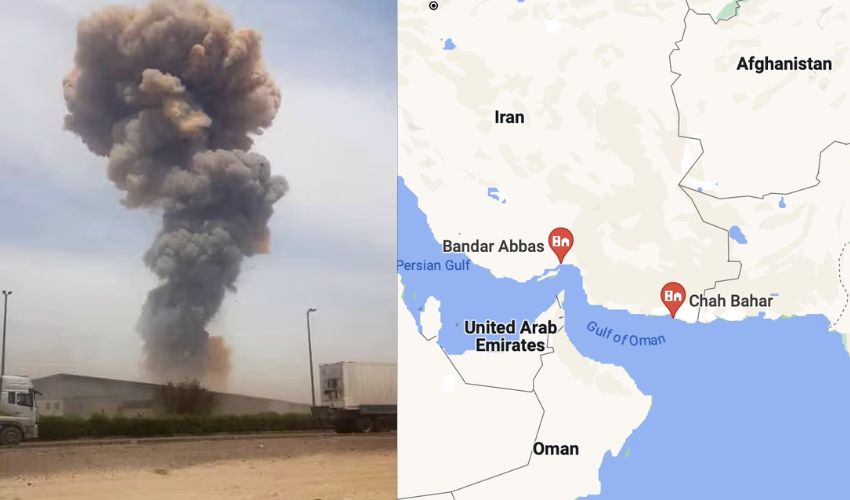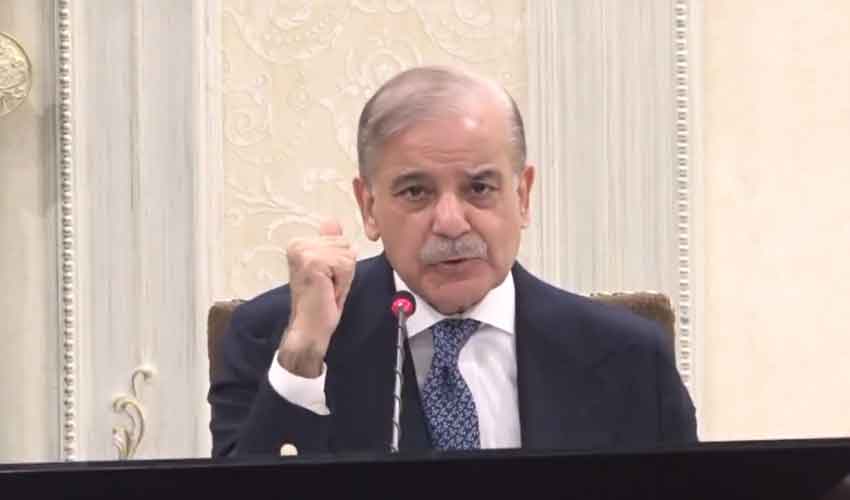Pakistan achieved a significant diplomatic success at the United Nations Security Council (UNSC), effectively blocking India’s attempts to push through a resolution that directly attributed the recent Pahalgam incident to Pakistan and incorporated language favoring New Delhi’s stance on Kashmir.
Despite India’s intensive lobbying efforts following the April 22 attack in the Pahalgam area of occupied Kashmir — where 26 tourists were killed in a firing incident — New Delhi failed to include the word “Pahalgam” in the final UNSC statement.
The Security Council’s carefully worded condemnation avoided direct reference to India’s claims and instead maintained the internationally recognized term "Jammu and Kashmir," reaffirming its disputed status between Pakistan and India.
In the statement issued four days after the incident, the UNSC strongly condemned the attack, expressing deepest sympathy and condolences to the families of the victims as well as to the governments of India and Nepal. The council reiterated that terrorism in all its forms and manifestations remains one of the most serious threats to international peace and security and emphasized that such acts are criminal and unjustifiable, regardless of motivation or perpetrators.
The Security Council urged all member states to cooperate actively with "all relevant authorities" under international law, pointedly avoiding any direct mention of India as the sole authority in the region. Diplomats noted that Pakistan, with the crucial support of China, played a pivotal role in shaping the language of the statement to prevent any implicit endorsement of India’s territorial claims.
Pakistan’s strategic moves at the UN
Pakistan, currently serving as a non-permanent member of the UNSC, coordinated closely with China to ensure the resolution remained balanced. Unlike the 2019 Pulwama incident, where the UNSC’s response was heavily tilted in India’s favor, Islamabad succeeded this time in preventing any direct blame from being placed on Pakistan.
In contrast to India's demand for a "clear and forceful" condemnation that named Pahalgam and Pakistan explicitly, the final statement issued by the Council remained neutral. It reflected Pakistan’s diplomatic efforts to highlight Jammu and Kashmir’s disputed status on the international stage.
Additionally, Prime Minister Shehbaz Sharif reiterated Pakistan’s willingness to cooperate with a “neutral and transparent” investigation into the Pahalgam attack, firmly rejecting what he described as "baseless allegations" leveled by India.
Rising tensions between Pakistan and India
Following the attack, tensions between the two nuclear-armed neighbors have escalated sharply. India responded by suspending the Indus Waters Treaty, expelling Pakistani citizens from its territory within 48 hours, shutting the Wagah border crossing, recalling its military attaché from Islamabad, and reducing diplomatic staff at its High Commission in Pakistan.
In retaliation, Pakistan’s National Security Committee announced the suspension of all bilateral agreements, including the Simla Agreement. Islamabad also closed its airspace and borders for Indian traffic, halted all forms of trade, and limited the diplomatic staff at the Indian High Commission to 30 members. Indian defense, naval, and air advisers were declared persona non grata and ordered to leave Pakistan. Visas of all Indian nationals — except Sikh pilgrims — were canceled, with orders to leave the country within 48 hours.
Defense Minister Khawaja Asif, speaking to Britain's Sky News, warned that if India launched any attack, it could lead to a full-scale war, and urged the international community to take note of the situation's gravity.
He also dismissed India's accusations linking Pakistan to the Pahalgam attack, calling it a "false flag operation" designed to malign Islamabad internationally.
United Nations urges restraint
UN Spokesperson Stéphane Dujarric, addressing a routine press briefing in New York, expressed the United Nations' "deep concern" over the developments in Kashmir. He urged both India and Pakistan to exercise "maximum restraint" to prevent further escalation.
“We continue to monitor the situation with very deep concern," Dujarric said. "We again urge both the Government of India and the Government of Pakistan to ensure the situation does not deteriorate further."
Notably, the UNSC’s statement this time stands in contrast to previous ones, reflecting a more cautious and balanced approach toward Kashmir-related incidents.



























